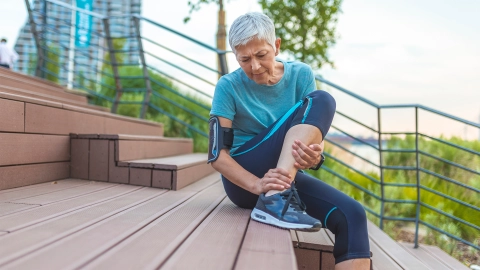ICD-Code M77.8: Other enthesopathies, not elsewhere classified
You have tendons, tendon sheaths, bursas or joint capsules that have changed.
Tendons are made up of very firm connective tissue. Tendons attach muscles to bones. A tendon sheath is a covering for the tendon. It cushions the tendon and contains a small amount of fluid. This reduces friction between the tendon and its surroundings. A bursa is a cushion of connective tissue filled with fluid. For example, there is a bursa beneath tendons or between bones and skin. The bursa prevents the tissue from rubbing together. A bursa also enables pressure to be distributed better. Joints are encased in a joint capsule.
Tendons, tendon sheaths, bursas or joint capsules can become inflamed or otherwise damaged, for example. This can be caused by overwork, injuries or pathogens, for example. There may then be some pain. The pain may make moving the affected area more difficult than usual.
Additional indicator
On medical documents, the ICD code is often appended by letters that indicate the diagnostic certainty or the affected side of the body.
- G: Confirmed diagnosis
- V: Tentative diagnosis
- Z: Condition after
- A: Excluded diagnosis
- L: Left
- R: Right
- B: Both sides
Further information
Source
Provided by the non-profit organization “Was hab’ ich?” gemeinnützige GmbH on behalf of the Federal Ministry of Health (BMG).

